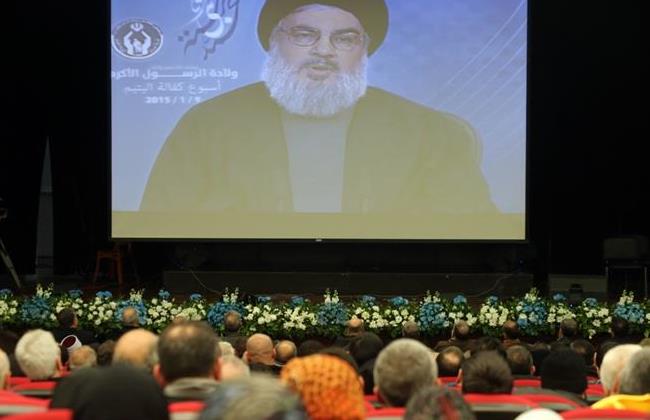
BEIRUT—Leaders and politicians throughout the Middle East have roundly condemned the attack in Paris, but in a region facing its own violence and attacks on freedom of expression, the news from France was widely met with a nod and shrug.
“The most minor things here aren’t guaranteed, so people don’t care about other things. Here their concerns are water, electricity and livelihood,” said Rana Idriss, the decorator at Gustav Patisserie, a family-owned bakery where macaroons and fruit tarts serve as reminders for the more than two decades Lebanon spent under French rule. “Maybe because here we have gotten used to these things, no one talks about it anymore.”
On Friday Hezbollah chief Hassan Nasrallah said groups like al Qaeda do more to offend the Prophet Muhammad than the cartoons mocking him. But many had other concerns.
While the hashtag #JeSuisCharlie trended world-wide this week, other similar hashtags began to pop up in an attempt to draw attention to an attack on press freedom in Saudi Arabia. Using the hashtag #JeSuisRaif, social media users attempted to shift the spotlight to Saudi blogger and activist Raif Badawi who was publicly given 50 consecutive lashes in 15 minutes on Friday, accused of insulting Islam, according to Amnesty International.
Mr. Badawi was arrested for co-founding the Saudi Arabian Liberals website which, according to Amnesty, encouraged political and social debate in the kingdom.
Many online said it was hypocritical for Saudi Arabia to condemn the attack in France as a “cowardly terrorist act,” even as it was preparing to carry out Mr. Badawi’s sentence. Some in the region have also noted that the case against Mr. Badawi hasn’t prevented French leaders from visiting Saudi Arabia, as recently as Sunday when the foreign minister stopped over.
“The French government cares about a specific type of freedom speech,” said Yazan Al-Saadi, a senior staff writer for Al-Akhbar English and a researcher at a Lebanese think tank. “If they really cared about this freedom of speech, why are they not saying anything about Saudi Arabia?”
Ayman Mhanna, executive director of the Skeyes Center for Media and Cultural Freedom, is helping organize an “I am Charlie” rally on Sunday in Beirut in solidarity and support for freedom of expression. More than 1,000 have said on Facebook that they plan to attend.
The rally, he said, was about freedom of expression world-wide, a message of particular importance in the Middle East.
Mr. Mhanna deplored those who condemn the Paris killings while adding a “but” qualifier about the cartoons mocking the Prophet Muhammad and other offensive material.
“This attempt at a justification is very dangerous. There are not acceptable reasons,” he said.
Still, some of those posting on the Facebook page for Saturday’s planned rally said Charlie Hebdo had gone too far with its religious satire, which has included cartoons caricaturing the Virgin Mary and Jesus.
Many posted comments noted that the world beyond the Middle East seemed to have grown hardened to the region’s violence.
“How come no one ever organized a JE SUIS ALI BAZZAL event?” Ahmad Jaber wrote on the page, referring to a Lebanese police officer executed by al Qaeda’s Nusra Front in December.
“He was killed serving his country and trying to protect you, and me, from the same killers that killed those 12 innocent people in Paris yesterday. Surely that counts for more, no?”
The kind of bloodshed Paris witnessed Wednesday has become the Mideast’s “daily bread,” said Antoine, a hotel worker who didn’t want to give his last name.
“(France) encouraged this war in Syria and now they are eating the poisonous dish they cooked. Are their lives worth more than the souls now living as refugees?” he said, motioning toward the mountains visible through the window behind.
He was alluding to the thousands of Syrian refugees living in ramshackle tents or dwellings in the country’s higher altitudes, where a severe winter storm has already taken some lives and threatens many more.
“We feel for them, sure,” he said of the victims of terrorist violence in France. “But they haven’t taken responsibility for the damage they have wrought here.”
— Mohammed Nour Al Akraa in Beirut contributed to this article.



